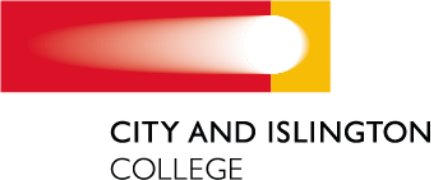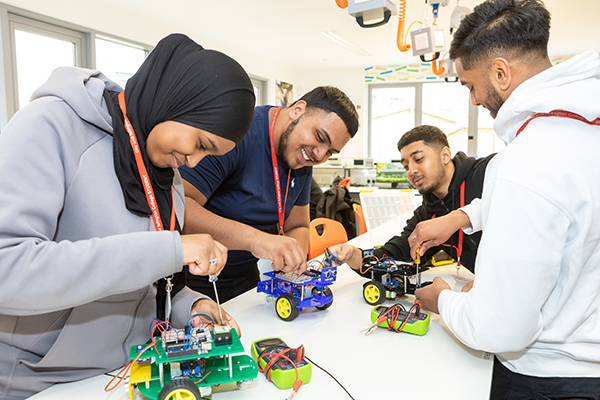
Engineering - T Level


ABOUT THE COURSE
A T Level is an exciting new technical qualification which will teach you the knowledge and skills needed to progress into skilled employment or higher-level technical training, such as higher education and higher apprenticeships. The T Level study programme is eligible for UCAS points.
The content for this qualification was devised by T Level panels, which included employers and industry stakeholders. Employers and other stakeholders helped create the assessments and set the standards to ensure you achieve the level of competence needed to enter skilled employment.
The T Level is made up of different components:
- A technical qualification in Engineering (the core component)
- A technical component in Design and Development for Engineering and Manufacturing (the occupational specialism)
- An Employer Set Project
- A substantial industry placement with an external employer (a minimum of 315 hours)
You’ll spend 80% of your time in the classroom and 20% on an industry placement with an employer (equivalent to 45 days) to give you the skills and knowledge companies look for. Your industry placement gives you the chance to learn what a real career is like while you continue your studies. When and how you complete it depends on the T Level, school or college, and employer.
To achieve the T Level, you will need to successfully demonstrate your achievement of each of the components.
This course is delivered at the Centre for Applied Sciences, more info here.
WHAT WILL I STUDY?
The core component will cover topics for Engineering Manufacturing, Design and Development including:
- Working within the Engineering and Manufacturing Sectors
- Engineering and manufacturing past, present, and future
- Engineering representations
- Essential mathematics for engineering and manufacturing
- Essential science for engineering and manufacturing
- Materials and their properties
- Mechanical principles
- Electrical and electronic principles
- Mechatronics
- Engineering and manufacturing control systems
- Recognised standards in engineering and manufacturing.
- Standard operating procedures (SOPs)
- Health and safety principles and coverage
- Business, commercial, and financial awareness
- Professional responsibilities, attitudes, and behaviours
- Stock and asset management
- Quality assurance, control, and improvement
- Continuous improvement
- Project and programme management
The occupational specialism will develop your knowledge in Mechanical Engineering:
- Analyse and interpret engineering and manufacturing requirements, systems, processes, technical drawings, and specifications.
- Evaluate systems, designs, components, and processes, managing and integrating design information, proposals, and specifications, to develop and improve mechanical engineering and manufacturing proposals and solutions.
- Propose and design mechanical engineering and manufacturing systems, products, components, processes, and solutions, considering requirements, constraints, and context.
- Collaborate to help manage, develop, test and quality assure mechanical engineering and manufacturing design information, systems, processes, and outcomes.
- Collaborate to help manage, develop, test and quality assure mechanical engineering and manufacturing design information, systems, processes, and outcomes.
WHAT WILL I NEED?
Entry requirements for this T Level programme are:
- GCSE Maths at grade 6 or above, and
- An additional four GCSEs at grade 5 or above, including GCSE English Language and GCSE Science (Double Award)
- Or an equivalent Level 2 qualification at Merit with a GCSE Maths at grade 6 or above
All applicants will be invited for an interview and assessment to confirm that the course is suitable for them.
HOW WILL I BE ASSESSED?
The core component of the study programme is 100% externally assessed through two written examinations and an employer-set project.
The purpose of the employer-set project is to ensure that you have the opportunity to apply core knowledge and skills to develop a substantial piece of work in response to an employer-set brief. The brief and tasks are contextualised around an occupational area and chosen by you.
The combined results from these assessments will be aggregated to form the overall core component grade (A* to E and U). The Engineering occupational specialism is separately assessed through synoptic assignments, graded at distinction, merit or pass.
WHAT WILL IT COST?
Aged 16-18
If you will be aged 16, 17 or 18 on 31st August prior to the start date of your course and you have the legal right to remain in the UK for the duration of your programme then your study with us will be free. Please see here for the documents you will need to show us.
Some courses will have other associated costs, such as for specialist materials and trips. Many of our students are eligible for financial support, see here for details.
WHAT CAN I DO AFTER?
The T levels will enable you to gain employment in the Engineering sector as a technician (for example, CAD Technician, 3D Printing technician, Machine Operator/Setter).
T Levels are also eligible for UCAS tariff points with equivalency to A Levels and most universities have confirmed they will be given equal merit.

